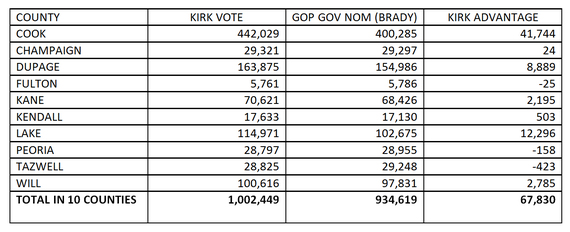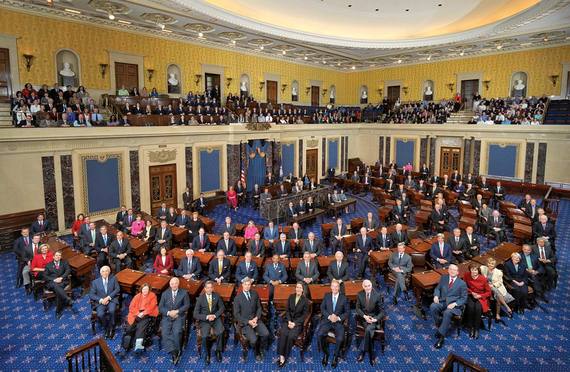Senator Mark Kirk is in trouble. He's the only Republican Senator whose 2016 race is rated "lean Democratic" by the respected Rothenberg & Gonzales Political Report. He got there by committing the cardinal sin of politics, selling yourself to voters as one thing and becoming something else when you get into office.
That's not to say elected officials always get in trouble for changing their position on a specific issue. Obviously that's not uncommon, for both substantive and political reasons. But when you entirely change your stance on a set of issues that was central to why the voters put you in office, those voters are likely to feel deceived.
At EDF Action, we have taken a close look at just how Senator Kirk won the 2010 U.S. Senate race in Illinois. The short version is this: He was perceived as more moderate than most Republicans, particularly on environmental issues.
That year, Kirk received a score of 70 percent from the League of Conservation Voters (LCV) for his actions as a member of the US House of Representatives. It was one of the highest scores given to a Republican. In contrast, the 2010 GOP nominee for governor of Illinois was a more typically conservative Republican, earning a score of 90 percent from the American Conservative Union.
Kirk defeated his opponent in the Senate race by 59,220 -- by outperforming that Republican gubernatorial candidate (who lost his race) by 65,313 votes statewide. In other words, Kirk's perceived moderation allowed him to do better than a standard Republican in Illinois.
Since entering the Senate, Kirk has become much less pro-environment. His 2014 LCV score was 20 percent -- meaning he voted against the pro-environmental position 80 percent of the time. Last year he also co-sponsored Sen. Mitch McConnell's resolution to overturn EPA's Clean Power Plan -- an action that would leave carbon pollution from power plants completely unlimited and unregulated by EPA. (Republican Senators like Collins of Maine and Ayotte of New Hampshire did not co-sponsor it.) This week, he doubled down by telling Politico that he's inclined to vote to overturn these first-ever limits on climate pollution from its largest source.
What does his turn against environmental protection mean for his 2016 reelection? A letter last year from a group of Illinois state legislators to EPA Administrator Gina McCarthy gives a clue.
The 53 Illinois legislators wrote to EPA endorsing the Clean Power Plan that Kirk wants to overturn. Their districts include parts of 10 counties in which Kirk out-performed the GOP gubernatorial candidate by 67,830 votes in 2010 - representing more than his margin of victory. If those state legislators reflect the opinions of many of their constituents, Kirk's move against the Clean Power Plan may undermine the perception of him as a moderate in the very places that delivered his victory in 2010.

In 2016, "Kirk plans to tout a moderate record" to gain re-election, according to a report in Roll Call. If that's his strategy, he might want to return to the moderate environmental record he amassed in the House - including support for limiting carbon pollution - that got him elected to the Senate in the first place. That is especially true because, unlike 2010, the 2016 election will be a high turnout presidential year, drawing many more progressive voters to the polls in blue Illinois.
His apparent intention to vote to continue unlimited carbon pollution from power plants suggests his strategy is off track.
If you think the criticism of Sen. Kirk is based on his party, take a look at the ads we ran recently -- here, here and here -- thanking Republicans for supporting smart ways to cut climate pollution. For us, it's not about political parties, it's about leaving a safe and healthy world for the next generation.
On Twitter @RealKeithGaby
U.S. Government photo. The Senate in 2010, when Rep. Kirk was still a moderate.

